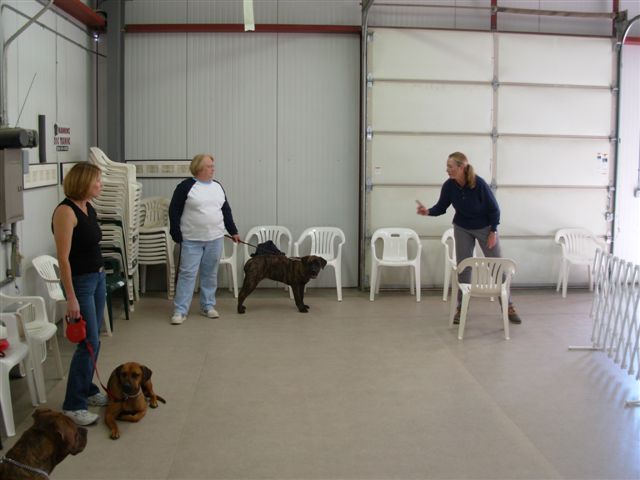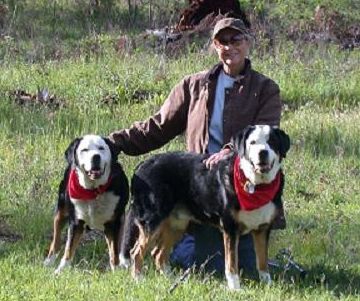His enthusiasm is so contagious that we often don't like to stop the game either. "Okay, one more...just one more....now this is the last one...," etc. If you've had a ball-crazy dog, you know what I'm talking about.
Unfortunately, Angus got "too much of a good thing" a few weeks ago. After a rousing game of fetch in the snow, he followed me inside and began limping on three legs. The pain was in his right shoulder; he was avoiding putting any weight on it at all.
Since he was no better the next morning, we took him to the vet. X-rays and an exam revealed nothing remarkable. The vet suggested it was either a soft-tissue injury or a chip of cartilage that had broken off and was floating around in his shoulder. We went home with anti-inflammatories and orders to keep him quiet for three weeks. If that didn't clear up the problem, he'd be facing arthroscopic surgery to the tune of about $2,000.
Angus ceased limping within a day, and we were all the more concerned that it was a chip. But we finished our course of prescribed "quiet" and he's had no recurrence. We haven't started playing fetch again yet either. When we do, it'll be by a different set of rules.
We'll require him to sit and wait until the object we throw hits the ground.
When a dog takes off at full speed after a flying object, whether it's a Frisbee or a ball, he's often craning his neck to locate it. He then leaps up into the air, twisting and contorting his body to catch the object, he lands hard on the front end, and he immediately twists back to return the object to the thrower. If he's a long-legged or heavy-bodied dog, the strain and stress on ligaments, muscles and entire skeletal structure can be devastating, especially with lots of repetitions.
It's dramatic and exciting to see dogs do this; Frisbee dogs are very entertaining. But when you think of the unnatural stress this activity puts on their bodies, you have to think twice about playing fetch this way with your own dog. You can still exercise his natural instinct and have fun doing it. Just tone it down so your dog doesn't have to jump, twist in midair, and crash to the ground. You'll probably extend his fetching days by several years.



















No comments:
Post a Comment